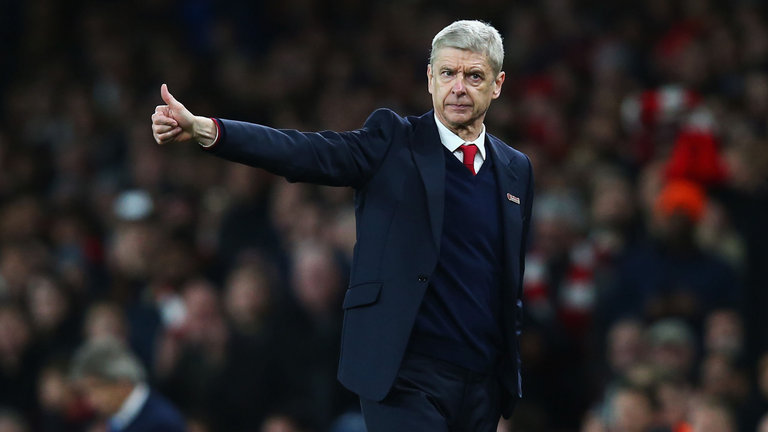HISTORY - IFFFHS AWARDS - THE WORLD'S BEST COACH OF THE FIRST DECADE (2001-2010)
Picture : Arsène Wenger has never won an annual IFFHS Award, but the Award of the First Decade for his regularity !
IFFHS AWARDS - ARSENE WENGER IS THE WORLD'S BEST COACH OF THE FIRST DECADE (2001-2010)
The roles of a national coach and a club coach are very different and their interests often contrary. For this reason the IFFHS has carried out separate annual world votings from the start. The experience of about a decade has shown that this is the most appropriate approach. However,it is not unusual for the best club coaches to become national coaches. And not rare a coach takes over after his job as national coach again the function of a club coach. So it is logically, for the purposes of a world ranking it is sensible to unite the two categories of coaches; this also allows for an examination over a longer period [the equivalent of coach in Great Britain is the manager].
Establishing The World‘s best Coach of the 1st Decade of the 21st Century was done on the basis of the annual world vote (by IFFHS), by taking each year’s vote as representing 10 % of the value for the decade. Each year jurors from different many countries have taken part in the vote and, in addition, the jurors in the early years voted for the top three places (3 points to 1 point), and later for the top four places (4 points to 1 point). So it would not be possible to
simply add the points awarded in the annual votes.
Alex Ferguson, second of the First Decade
The IFFHS has devised an equitable method for establishing the The World‘s best Coach of the 1st Decade of the 21st Century. From the annual world rankings of the coaches (a result of the world votings) the IFFHS will take into consideration the “Top 20” for each year and allocate points to each place. So the first-placed receives 20 points, the second-placed 19 points, the third-placed 18 points ... and a point for twentieth place. If the annual world ranking comprises more than 20 coaches, then the coaches from 21st place onwards receive no points. If the annual world ranking comprises fewer than 20 coaches (based on the fixed rules), no points will be awarded for the unoccupied places. Adding the points from the individual years of both categories provides a world ranking for the period 2001-2010. The first-placed goalkeeper in this final world ranking is The World‘s best Coach of the 1st Decade of the 21st Century. It is important to take into consideration for each year the “Top 20” of The World‘s best National Coach and the “Top 20” of The World‘s best Club Coach. Each of the annual votes produces 5% of the points for the decade.
José Mourinho, third of the First Decade
A total of 176 coaches have featured in the ten annual votes for the each two world rankings - The World‘s best National Coach and the The World‘s best Club Coach. These 176 coaches come from 50 countries. The country with most coaches is Argentina (18), who have with Marcelo Bielsa and the not more active Carlos Bianchi among their best-placed coaches. Brazil with 16 follows, while the best European nations of coaches are: Spain (14) and France (14) ahead of Germany (13
and Silvia Neid), Italy (11) and the Netherlands (9). The following countries are represented with five and fewer coaches. It is notable that England is represented by only three coaches among the top 176 and the best-placed Englishman is Roy Hodgson on the 92nd place, while Italy has three coaches among the “Top 10" catapulted to 3rd place. He was highly successful in Portugal, England, and Italy, and now coaches Real Madrid CF. Only the votes in 2010 resulted in a decision that the overall winner is one of the two coaches, who have coached only one club throughout the decade. The 61-year-old Arsène Wenger (Arsenal FC London) successful defended his lead ahead of Sir “Alex” Ferguson (Manchester United FC) and is The World‘s best Coach of the 1st Decade (2001-2010). Although the Frenchman has never won the annual vote, he has been among the best-placed coaches every year. It is admirable, how he has repeatedly moulded young players into an attacking and technically brillant way of play. There is little doubt that the three first-placed coaches have had most influence on world football during the 1st Decade.
The World‘s best Coach of the 1st Decade of the 21st Century Arsène Wenger was honoured on the occasion of the World Football Gala 2012 in Barcelona with a Certificate and a golden trophy.
THE WORLD’S BEST COACHES OF THE FIRST DECADE
1. Arsène Wenger (France) 156 points
2. Sir Alexander Ferguson (Scotland ) 148
3. José Mário dos Santos Mourinho Felix (Portugal) 135
4. Fabio Capello (Italy) 120
5. Guus Hiddink (Netherlands) 112
6. Carlo Ancelotti (Italy) 108
7. Luiz Felipe Scolari (Brazil) 101
8. Marcelo Alberto Bielsa (Argentina) 101
9. Rafael Benítez (Spain) 97
10. Marcello Lippi (Italy) 88
11. Vicente del Bosque (Spain) 85
12. Franklin Rijkaard (Netherlands) 80
13. Sven-Göran Eriksson (Sweden) 79
14. Karel Brückner (Czech Republic) 76
15. Carlos Alberto Gomes Parreira (Brazil) 65
16. Ottmar Hitzfeld (Germany) 65
17. Carlos Caetano Bledorn Verri »Dunga« (Brazil) 62
18. Otto Rehhagel (Germany) 61
19. Joachim Löw (Germany) 58
20. Carlos Bianchi (Argentina) 53
